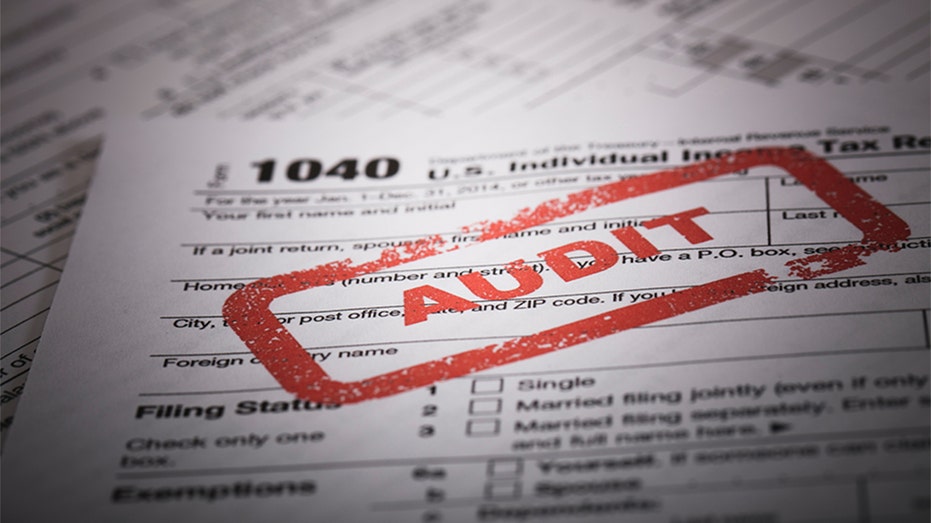Trump tax returns: IRS hobby rules put $1.1M of deductions at risk
TaxMama says continuous business losses raise red flags
Gaetz shakes up speakership contest by casting vote for Trump
Fox News congressional correspondent Chad Pergram brings the latest on Rep.-elect Kevin McCarthy's speakership debacle and when the House can expect to move to an eighth vote.
Former President Donald Trump’s years of business losses are an IRS red flag, says one well-known tax expert.
Trump's federal tax returns show multiple aviation businesses claiming losses for three straight years, placing those activities at risk of being reclassified as not-for-profit activities or "hobbies" under IRS rules.
As more Americans enter the gig economy, understanding those rules can help self-employed taxpayers stay clear of the IRS by keeping track of yearly profits and losses and avoiding discretionary business purchases in years that would create losses that may trigger IRS hobby rules.
In Trump's case:
- DJT Aerospace LLC broke even in 2016 and 2017 and reported losses in 2018-2020.
- DT Endeavour I LLC and DJT Operations II LLC lost money between 2018-2020.
The IRS frowns on losing streaks. The service believes businesses should make a profit in at least three of every five years, including the current year (or at least two of the last seven years for activities that consist primarily of breeding, showing, training or racing horses).
"If someone has a business, they operate the business to make a profit," the IRS said in a 2019 tax tip. "In contrast, people engage in a hobby for sport or recreation, not to make a profit."
Hobby loss rules

Former President Donald Trump and former first lady Melania Trump stop to speak to the media as they arrive for a New Years Eve party at Mar-a-Lago, in Palm Beach, Fla., Dec. 31, 2022. (AP Photo/Lynne Sladky / AP Images)
TRUMP TAX RETURNS: FIVE NOTABLE FACTS
The IRS can disallow business losses by reclassifying activities as a hobby. Prior to Trump’s tax reform law — the 2017 Tax Cuts and Jobs Act — hobbies could write off expenses as miscellaneous deductions until their net income reached $0. Any additional expenses would not be deductible.
TCJA eliminated miscellaneous deductions. If the IRS decided Trump's aviation companies were hobbies, Trump would still have to report the income, but would not be allowed to claim expenses, thereby transforming almost $1.1 million of 2018-2020 business deductions into non-deductible hobby expenses, increasing taxable income and creating back taxes.
"If a taxpayer receives income for an activity that they don’t carry out to make a profit, the expenses they pay for the activity are miscellaneous itemized deductions and can no longer be deducted," the IRS said in its tax tip.
Red flags

Copies of former President Donald Trump and former first lady Melania Trump individual tax returns for 2019, released by the Democratic-controlled House Ways and Means Committee, are photographed Friday, Dec. 30, 2022. (AP Photo/Jon Elswick / AP Images)
NEW IRS TAX BRACKETS TAKE EFFECT IN 2023, MEANING YOUR PAYCHECK COULD BE BIGGER
"Continuously running losses will red-flag tax returns," Eva Rosenberg told FOX Business in a statement. Rosenberg is an enrolled agent qualified to represent taxpayers before the IRS and the founder of TaxMama.com, a popular tax advice website.
"Generally, the IRS computer will generate a report on businesses that don't meet certain guidelines based on statistical analysis (DIF scores)," she adds.
Losing money for three or more years doesn’t automatically mean the IRS will reclassify your business as a hobby.
"When you can prove that a business is operated legitimately, you can get around those rules," Rosenberg tells FOX Business.
Getting around hobby rules

Stock photo of a Red Audit stamp on a 1040 US individual income tax return.
IRS SAYS AVOID 'SURPRISE' TAX BILL BY MAKING FOURTH-QUARTER PAYMENT BEFORE JAN. 17
Rosenberg says some things that are critical for this proof include:
- Having a business plan that shows when the business expects to show a profit,
- Having a business asset that is appreciating and will more than cover any losses, and/or
- Changing business operations to find a way to generate a profit.
Changes may include adjusting product lines, revising pricing or improving marketing.
5 THINGS TO KNOW ABOUT YOUR 2023 TAXES
Rosenberg says if you are facing a hobby audit, it’s important to show change.
"An IRS agent described it to me this way once. She used a definition of insanity — doing the same thing over and over again and expecting different results."
The hobby risk rules are not limited to sole proprietorships. Not-for-profit rules also apply to partnerships, estates, trusts, and S corporations, meaning other Trump businesses may be at risk.
Rosenberg says, interesting enough, the IRS places a stronger red flag on personal returns and "not that strong an indicator" on partnership returns.
"And you can see, in this case, most of [Trump’s] losses were generated on partnership returns," she adds.
GET FOX BUSINESS ON THE GO BY CLICKING HERE
What is tax loss harvesting?
Market Rebellion co-founder Jon Najarian weighs in on the S&P 500's performance on 'Making Money.'






















